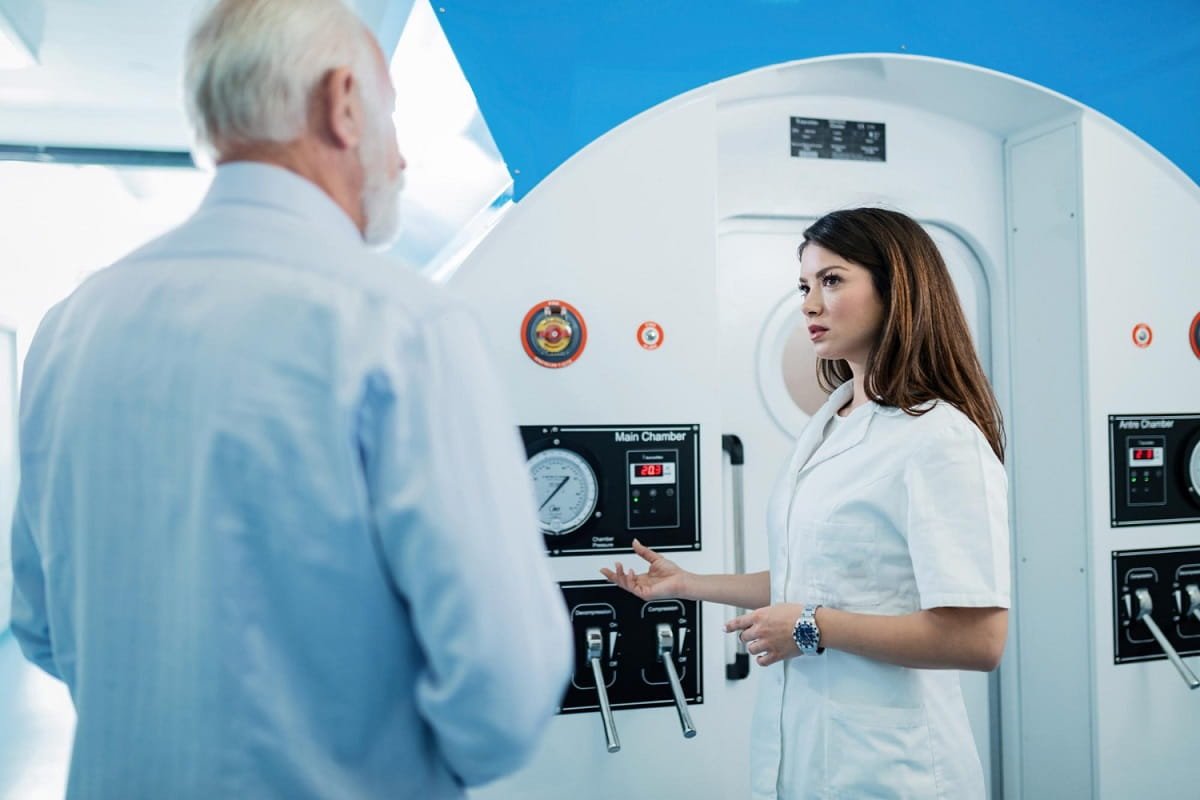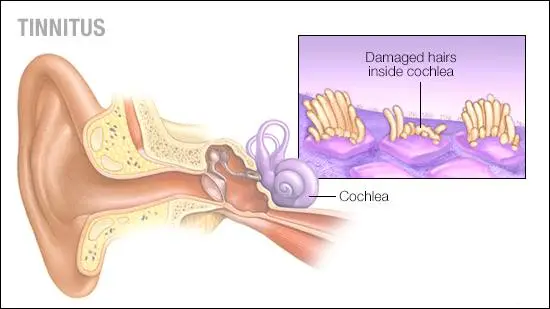Can hyperbaric oxygen therapy help tinnitus?

Tinnitus is a common condition that affects millions of people worldwide. It is characterized by a ringing or buzzing sound in the ears that can range from mild to severe.
While there is no known cure for tinnitus, there are several treatments available to help manage the symptoms.
One such treatment is hyperbaric oxygen therapy, or HBOT. This therapy involves the use of pressurized oxygen to help reduce symptoms and potentially improve the patient’s quality of life.
While the exact mechanism of how HBOT helps tinnitus is unclear, numerous studies have demonstrated its effectiveness. In this article, we explore the potential benefits of HBOT for tinnitus, as well as the research that supports its use.

What is Hyperbaric Oxygen Therapy (HBOT)
Hyperbaric oxygen therapy (HBOT) is a medical treatment that involves breathing 100% pure oxygen in a pressurized chamber.
As the name suggests, the therapy is done in a pressurized chamber that is filled with pure oxygen. The pressure inside the chamber is increased to up to two times the normal atmospheric pressure (2 ATA) to facilitate greater diffusion of oxygen into the bloodstream.
The increased pressure causes the oxygen to diffuse into the tissues faster, providing greater and longer-lasting saturation of the tissues.
There are several indications for which HBOT is used. These include the healing of soft tissue injuries, reduction of inflammation, brain injury and the treatment of some neurological conditions. Check all HBOT’s benefits here.
HBOT is also used for the treatment of certain types of tinnitus, as well as other disorders linked to hearing loss.

How does HBOT work for tinnitus?
It has been suggested that HBOT may increase blood flow to the inner ear, which may help reduce the amount of noise perceived by the patient.
It has also been suggested that HBOT may help repair the blood vessels in the inner ear, thus helping to alleviate the symptoms of tinnitus.
Another theory suggests that HBOT may help to reduce the amount of neurotransmitters (such as glutamate) that are responsible for the transmission of sounds in the inner ear.
It is also suggested that HBOT may help to “heal” the central nervous system, by promoting Neurogenesis – which in essence is a repaid mechanism of the brain.
Potential benefits of HBOT for tinnitus
One potential benefit of HBOT for tinnitus is that it may improve blood flow to the inner ear and other parts of the body.
This increased blood flow may help to reduce inflammation and promote healing. Another potential benefit is that HBOT may help to reduce stress and anxiety, which can be common in people with tinnitus.
Research studies on HBOT for tinnitus
There have been a number of studies that have investigated the effectiveness of hyperbaric oxygen therapy (HBOT) for tinnitus, but the results of these studies have been mixed.
Some studies have suggested that HBOT may be helpful in reducing the severity of tinnitus, while others have not found any significant benefits.
Journal of Undersea and Hyperbaric Medical Society
One study published in the Journal of Undersea and Hyperbaric Medical Society that hyperbaric oxygen therapy may be a good option for people who have not improved with other treatments.
The study included 84 patients with tinnitus who were treated with a medication called betahistine dihydrochloride for six weeks, and 36 patients with tinnitus who were not improved by the medication and were then treated with a combination of hyperbaric oxygen therapy and a supplement called gingko biloba extract for six weeks.
The results showed that the medication helped some patients with tinnitus, and the combination of hyperbaric oxygen therapy and gingko biloba extract helped even more patients.
Acta Oto-Laryngologica journa
Another study published in the Acta Oto-Laryngologica journal, looked at the effectiveness of two different types of oxygen therapy for treating hearing loss and tinnitus.
One type of therapy, called hyperbaric oxygen therapy (HBOT), involves breathing pure oxygen in a pressurized chamber, while the other type, called normobaric oxygen therapy (NBOT), involves breathing pure oxygen without the use of a pressurized chamber.
The study included 60 people who received HBOT and 60 people who received NBOT. The results showed that the people who received HBOT had better recovery of their hearing and were less likely to still have tinnitus after the treatment compared to the people who received NBOT.
Specifically, 42 out of the 60 people who received HBOT regained normal hearing after the treatment, while only 24 out of the 60 people who received NBOT regained normal hearing. These results suggest that HBOT may be more effective than NBOT for treating hearing loss and tinnitus caused by acoustic trauma.
European journal Oto-rhino-laryngologia Nova
A review published in the European journal Oto-rhino-laryngologia Nova, studied 68 publications on HBOT for ear conditions involving 4280 patients.
The review looked at the results of these studies and compared them to current clinical studies on HBOT for improving hearing and reducing tinnitus in people with ear conditions.
The results suggest that HBOT may be effective for improving hearing and reducing tinnitus in people with ear conditions that have not improved with other treatments and started within 6 weeks of the condition, but may not be effective for ear conditions that have been present for a longer time.
Side effects and risks of HBOT for tinnitus
The side effects associated with HBOT are mild and can be managed with appropriate medical care.
The risks associated with HBOT are minimal and can also be managed with appropriate medical care. These include the risk of seizures, hypertension, and worsening of symptoms.
As with any medical treatment, patients are advised to speak with their doctor to discuss the risks and benefits of HBOT.
Further Reading: How To Choose a Hyperbaric Oxygen Therapy Chamber For Home Use
Conclusion
Hyperbaric oxygen therapy has been shown to be an effective treatment for tinnitus caused by hearing loss.
These improvements may be related to the potential effects of HBOT on the central nervous system, as well as potential effects on the inner ear. While the exact mechanism of how HBOT helps tinnitus is unclear, numerous studies have demonstrated its effectiveness.
These studies suggest that HBOT may help to reduce the amount of noise perceived by the patient, as well as help repair the blood vessels in the inner ear, potentially helping to alleviate the symptoms of tinnitus.
It is important to note though, that HBOT is not a cure for tinnitus, and it is not recommended as a first-line treatment for this condition.
If you are considering using HBOT for tinnitus, it is important to discuss the potential risks and benefits with your healthcare provider.
